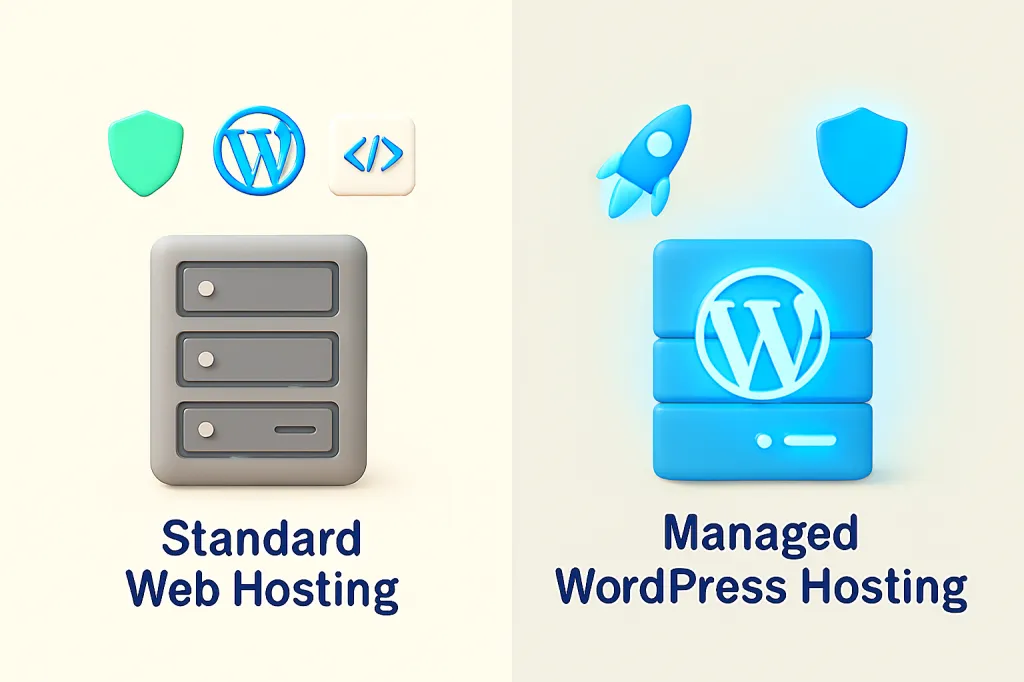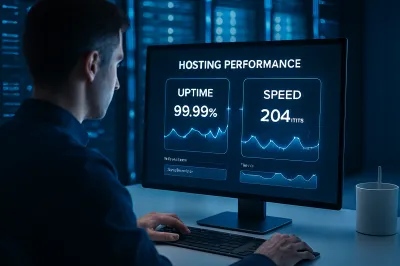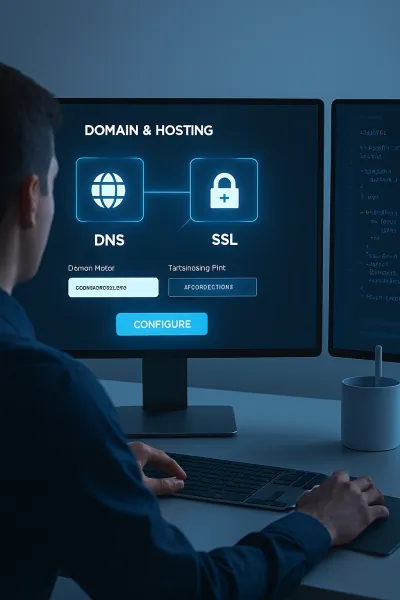So you've decided to build your website with WordPress, the world's most popular Content Management System (CMS). Your next big decision is choosing the right hosting. As you browse hosting company websites, you'll likely see two distinct options: "Shared Web Hosting" and a slightly more expensive option called "Managed WordPress Hosting."
They sound similar, but what's the real difference? Is the "WordPress" label just a marketing gimmick, or is it worth the extra cost? Understanding the fundamental differences between these two types of hosting is crucial to making the right choice for your website's performance, security, and your own peace of mind. This guide will break it all down.
What is Standard Web Hosting? (The DIY Approach)
Standard web hosting (most commonly Shared Hosting) is a general-purpose hosting environment. Think of it like renting an empty, unfurnished apartment. You get the essential space and utilities (server space, bandwidth, a control panel), but you are responsible for furnishing it, setting everything up, and performing most of the ongoing maintenance yourself.
With standard hosting, you get a blank slate with a control panel like cPanel. You can install WordPress (usually with a 1-click installer), but after that, you are generally responsible for:
- Updates: Manually updating the WordPress core, all your plugins, and themes.
- Performance: Setting up and configuring your own caching and speed optimization solutions.
- Security: Installing and managing security plugins, scanning for malware, and hardening your site.
- Backups: Configuring your own backup schedule and solution.
Best for: Hobbyists, beginners on a very tight budget, or technical users who want full control to run multiple types of applications (not just WordPress) on their server.
What is Managed WordPress Hosting? (The Full-Service Approach)
Managed WordPress Hosting is a premium, specialized service where the entire hosting environment is built and optimized exclusively for WordPress websites. Think of it as renting a fully furnished, luxury serviced apartment. Not only is everything already set up and optimized for you, but you also have a 24/7 concierge (the support team) who are experts in your specific building (WordPress).
The "Managed" part means the hosting provider handles all the technical heavy lifting for you. Key features typically include:
- Automatic, Managed Updates: The host will safely and automatically update your WordPress core software and sometimes even your plugins, often testing for conflicts first.
- Superior Performance: The servers are fine-tuned specifically for WordPress. This includes server-level caching (which is much faster than plugin-based caching), a built-in Content Delivery Network (CDN), and other performance tweaks that are active out of the box.
- Enhanced Security: The entire server infrastructure is hardened against common WordPress vulnerabilities. Features like daily malware scanning, automatic threat detection, and even free hack-fixes are standard.
- Expert WordPress Support: The support team is composed of WordPress specialists. They can help you with complex issues that go beyond just the server, such as plugin conflicts or theme problems, which a standard host's support team typically won't touch.
- Developer-Friendly Tools: Most managed hosts include premium tools like "staging environments," which allow you to create a clone of your site to safely test changes before pushing them live with a single click.
Best for: Business owners, serious bloggers, e-commerce stores, and agencies who value their time and want the absolute best performance and security without the technical headaches.
Key Differences at a Glance
| Feature | Standard Web Hosting | Managed WordPress Hosting |
|---|---|---|
| Performance | Good (DIY Optimization) | Excellent (Optimized out of the box) |
| Security | Basic (DIY Hardening) | Advanced (Proactive & Managed) |
| Updates | Manual (Your responsibility) | Automatic & Managed |
| Support | General Server Support | Expert WordPress Specialists |
| Price | Low | Premium |
Conclusion: Which One Should You Choose?
The decision ultimately comes down to a trade-off between Cost & Control vs. Performance & Convenience.
- Choose Standard Web Hosting if you are on a tight budget, enjoy the technical side of managing a website, or need the flexibility to run software other than WordPress.
- Choose Managed WordPress Hosting if your website is crucial to your business, you want the fastest possible performance and tightest security without the hassle, and you see the extra cost as a worthwhile investment in your time and peace of mind.
For most serious projects, the time saved and the performance gained from Managed WordPress Hosting make the premium price a valuable investment in your online success. 🚀





